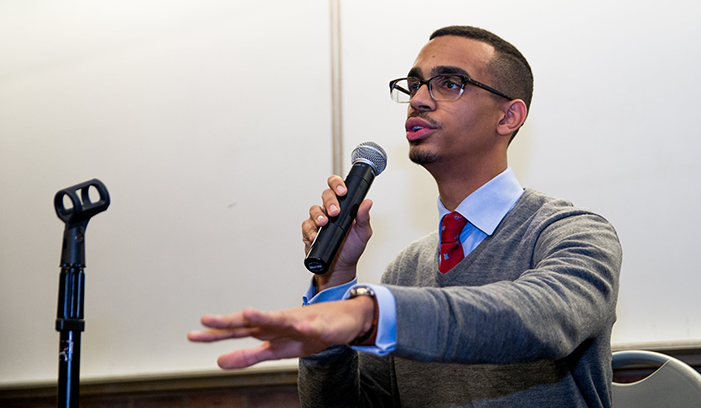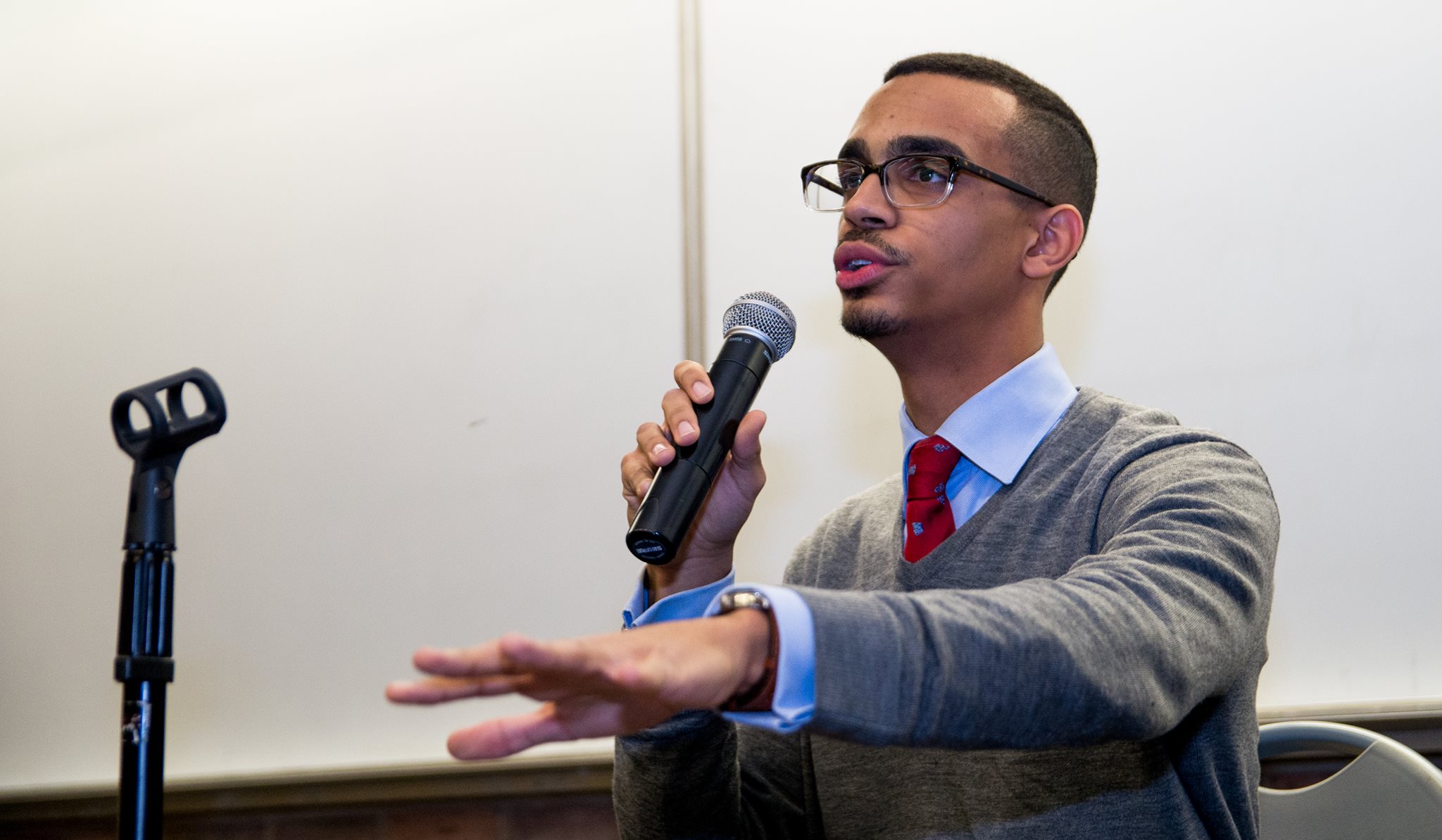
John Henry is the Executive Director of cofound/harlem, “a non-profit, social-impact accelerator building 100 companies in Harlem in 5 years to increase economic opportunity for Harlem residents.” John also runs the popular Uptown Tech Meetup group, which hosts regular events, workshops, and intimate sessions with industry leaders.
Before Cofound, John was an award-winning jazz musician and the founder/CEO of Mobile City Services, “an on-demand service suite, offering busy professionals dry cleaning, laundry, and housecleaning at the tap of a button.” In an interview with Abernathy, John talks about some of his earliest life lessons that made him the man he is today and how he started Cofound Harlem.
Follow John Henry on Twitter here.
So what’s your story?
The story is really super-duper nuanced, with a lot of beautiful little moments in there. I should write a book or at least make a documentary about these moments so I don’t forget them later.
And we’d be happy to publish that.
[Laughs] That’s awesome. I’ll go quickly through it, because I’d rather spend more time talking about Cofound, [but] here’s the story in a nutshell. I was born to immigrant parents in New York City but moved to Florida, where I was raised. I grew up in a bunch of different parts of Florida, mostly along what they refer to as the Treasure Coast, which is really just an hour north of West Palm Beach. I moved back to [New York City] to chase my first love, jazz, when I was 18. I was a jazz guitarist by trade. That was what I did and as intensely as I focused on being an entrepreneur; I was a jazz musician. I did well with it. I became a nationally recognized musician. I’ve won awards. I had my own band. I moved out of my house early and I was able to make a living just being a musician and I thought I was hot shit. I was like “you know what? I’m going to move to the city to do it.”
I moved to the city and ending up working a bunch of dead-end jobs to make ends meet. That’s when I ended up landing a gig as a doorman on Wall Street. And I often say “opening up doors for people opened up doors for me.” I spent a year on Wall Street on the 7500 residential building just serving some of the world’s most wealthiest people. This is a good segue to remind you that I came from the home of undocumented immigrant parents. One of the things they thought me is “John, if you’re going to do something, do it well.” So, with that said, I was the best damn doorman you could find. I remembered kids’ names, I remembered pets’ names. I remembered everything. When I saw you coming, I would have your packages and your dry cleaning already ready. I didn’t have anything written down. This was all mental. And the reason for this is, I really wanted to be the best damn doorman around.
“I moved to the city and ending up working a bunch of dead-end jobs to make ends meet. That’s when I ended up landing a gig as a doorman on Wall Street. And I often say ‘opening up doors for people opened up doors for me.'”
After a year of doing that, I was offered the opportunity to do it in Brooklyn for higher pay. I ended up doing it for another year where the residents were this creative, young, brown, often ethnically diverse group of people. We’re talking about professional rock climbers, dating coaches, writers, owners of clothing lines, and entrepreneurs. It was like, “Holy shit! You can make a living and a damn good one at that without compromising an ounce of what you love to do.”
When was Cofound born?
The very first meeting we ever had for Cofound was also the very first day I found out someone was going to buy the company. We were at 67 Orange Street (a trendy Harlem lounge) just sitting down and having a drink like “let’s talk about Cofound Co.” I was having this conversation with my two business partners, one of which I had relationship with and the other I’d met through the person I already had a relationship with. We were all having a company and Evan, the person I didn’t know, was like, “Oh, this is kind of cool,” and it worked because they were both tech-minded. I was new to Harlem and didn’t really know much so we started coworking, a lot. And actually, they were the ones who had the idea. They were together and were like, “Hey, I had this idea.” They brought this idea to me and I was like, “hmm, interesting.” And so, I couldn’t stop thinking about it. I thought it was just going to be a side thing.
You’re backed by some pretty well-known brands. Do you mind speaking on how that came to be?
Sure. I was at Google speaking at a founder’s panel at Google’s headquarters. I was speaking about Mobile City, but towards the end, I briefly mentioned Cofound. It was just a ceiling of the idea and one of the finance managers was like, “Oh, that’s really cool. Let’s have a sit-down about it.” He invited me back. He liked the idea and Google has been really supportive of social causes.
Digital NYC is one of our corporate sponsors. Gust, which is one of the largest investment platforms—they finance billions of dollars worth of deals—came together because of my relationship with Mr. David Rose, who’s very near and dear to my heart. He came to our launch event and he’s just been an awesome pillar of support. He’s taken me around, we’ve gone to ball games together and he’s just been someone who’s very instrumental in the growth of this company.
